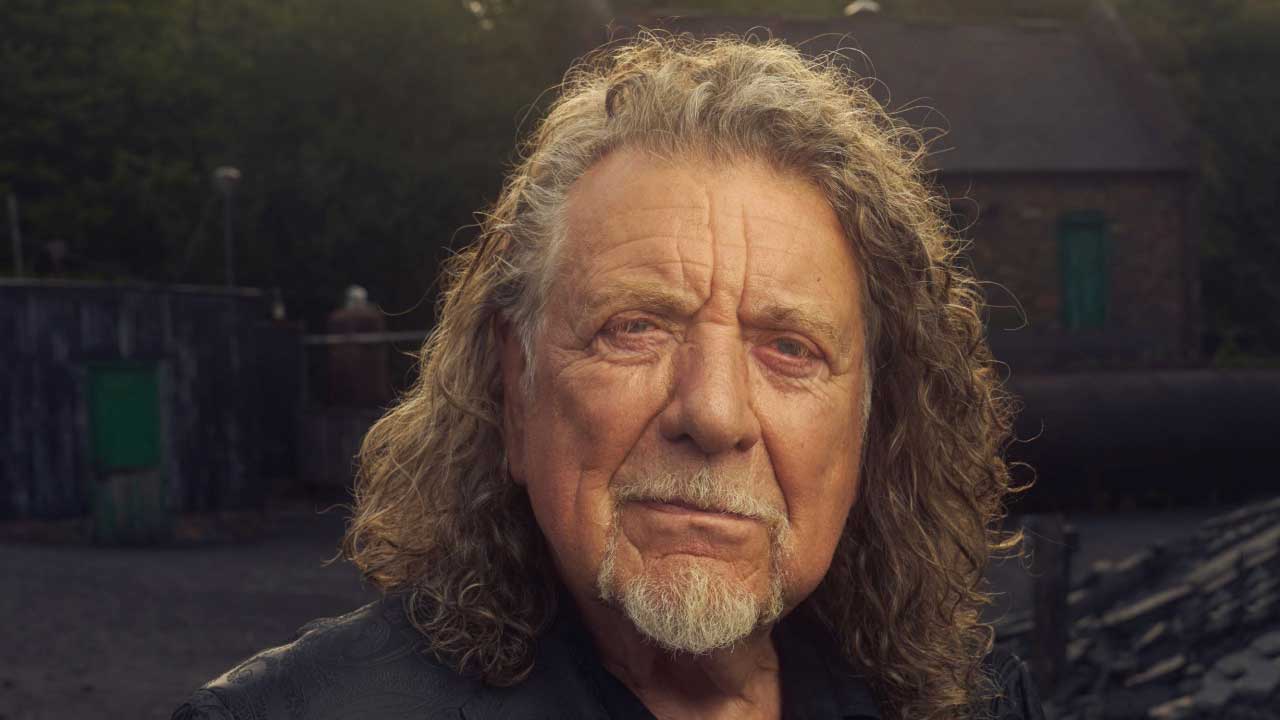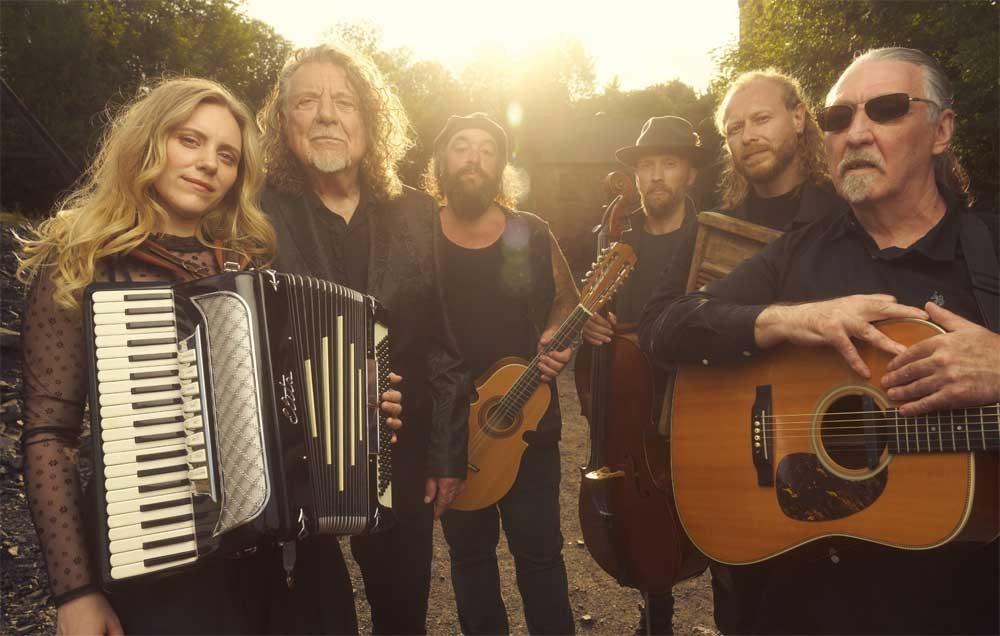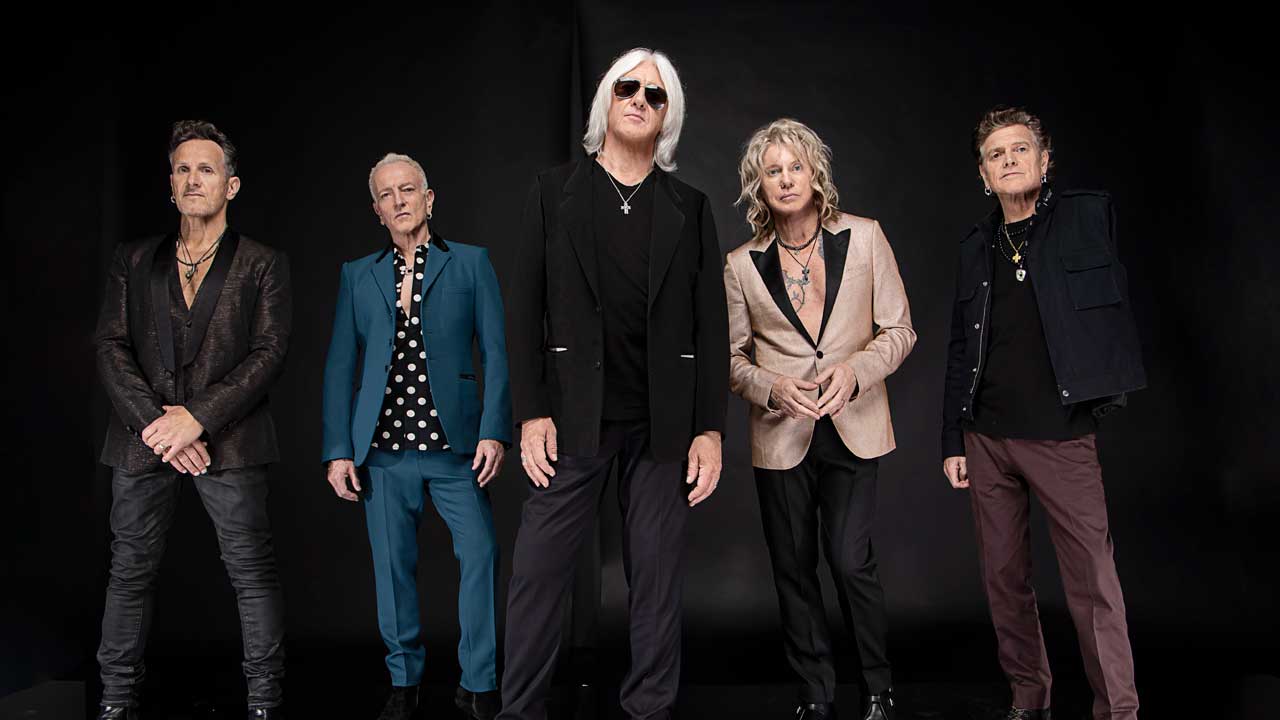"I was in a cosy thing that went on too long... and I made a great escape": Robert Plant on musical freedom, unfinished business, and getting confused with Robert Palmer
Robert Plant talks about his latest group Saving Grace, and compares nights out in small provincial towns to meetings with Barack Obama and Prince Charles

Many moons ago, at the height of Led Zeppelin’s success, Robert Plant and Jimmy Page had an idea. They would buy an old bus and convert it into a kind of travelling stage on wheels.
“We were going to have a hydraulic side on it, which would open up, and a small generator underneath it, so we could do acoustic shows anywhere,” says Plant. “We could drive through the world and just set up and play. The exchange of energy when you don’t pump the thing up is priceless.”
What exactly the ‘thing’ was is one of the great intangibles that come more than once in a 45-minute conversation with Robert Plant, but in this case he probably means playing music – specifically, playing music purely for the joy of it. That certainly seems to be one of his defining characteristics, particularly for the past 30-odd years.
It’s definitely one of the driving forces behind his new band, Saving Grace; although ‘band’ seems to be a little too formal a description. It’s more of a collection of like-minded musicians from the same corner of England who got together to play a bunch of old and slightly less old songs they loved, then spent the next few years accidentally recording an album.
That album, also called Saving Grace, comprises 10 of those songs, ranging from the well-travelled spiritual Gospel Plough and Chevrolet, the latter evolved from an old Memphis Minnie number, to more recent songs by cult alt.country band The Low Anthem (Ticket Taker) and Plant favourites Low (Everybody’s Song, the third track of theirs he’s recorded).

They’re not covers so much as interpretations of songs he likes and thinks he and the rest of Saving Grace – co-vocalist and accordion player Suzi Dian, her husband, drummer Oli Jefferson, banjo and string player Matt Worley, guitarist Tony Kelsey and cellist Barney Morse-Brown – can find something interesting and hopefully new in.
In that respect, Saving Grace could be seen as a spiritual sequel to Plant’s 2010 album Band Of Joy or 2002’s Dreamland. Or maybe it’s closer in spirit to his late-90s band-come-bunch of wandering minstrels Priory Of Brion. But then all of that would suggest there’s actually a plan behind it.
Sign up below to get the latest from Classic Rock, plus exclusive special offers, direct to your inbox!
“My reputation and name is what it is, but it’s not going to set the world on fire any more because I’ve walked away from too many things,” Plant says. “I didn’t play the game. I haven’t got the make-up on. I haven’t got the greasepaint on.”

It’s a sunny August afternoon, and we’re sitting in the upstairs bar of a North London pub. Plant is dressed in an elegant brown suit and wearing his 76 years well. He’s an entertainingly tricky interviewee. Not because he’s intimidating (he isn’t), but because his conversation is full of digression and diversion. He’s given to wandering from one topic to another without leaving a thread to follow: one moment giving a pocket history of the late-60s blues/jazz/ R&B scene, the next joking about how people get him mixed up with Robert Palmer (“People go: ‘Didn’t he have that video with the chicks in black? Isn’t he dead?’”).
Getting the hard details of how Saving Grace came together is equally tricky, partly because there don’t seem to be any hard details. It’s almost as if the story of how it happened isn’t as important as the fact that they just exist.
“I didn’t have a band,” he says. “I was just tinkering with Matt Worley, discussing stuff that we appreciate from another period in time, from before we’d gone into the high heeled boots and all that stuff. So to find anybody near where I live who was still alive and can relate to any of that and have an opinion on it was magnificent. That’s where it started: ‘So how about playing some of this?’”
They began to accumulate other musicians. Then, without fuss or fanfare, Saving Grace began playing gigs. The first was in February 2019 in a small theatre in the market town of Bishop’s Castle, Shropshire (population 1,893), near where Plant lives. The next one was in Bath. Others followed: Wimborne Minster, Brierly Hill, Newtown, Stroud.
“We had no website, no nothing at all. We just played,” he says. “I coined a phrase: ‘Nobody knows what it’s like’, because nobody knew what it was like. We’d turn up and play places where tickets are cheap, people come out and have a great time, and fuck off all the other stuff completely.”
Actually making a record seems to have been an even more amorphous process. “Amateur hour,” is how he cheerfully describes it.
If the album had a starting point, it was during covid, in one of those periods where people could go outside but they had to stand several feet apart. That’s how Plant and the rest of Saving Grace came to be in an empty field outside his house in the countryside, singing and playing together in the open air.
“You can take an acoustic guitar ten feet away, and play and record it the same way as you can record somebody anywhere else. We’d put a mic in the field and a line back into the house to the mixing desk, and Oli created a rhythm on the snare drum with his hand. That’s what happened with Gospel Plough. That was the beginning.”
He begins talking about most bands’ futile search for the perfect drum sound, which eventually leads to a Yes rehearsal that he attended in the 80s. “They were just about to do Owner Of A Lonely Heart, and I remember Trevor Horn was there and they were trying different snare drums out. [Makes drum sound noise] ‘No, go in the corner a bit more’ [makes drum sound noise]. And it went on day after fucking day.”
There was no such time-wasting here. Or maybe there was. It was just a different kind of time-wasting. “We’d do something one week, then do some gigs. Then say: ‘Is everybody free? Fancy going to Gordon’s barn next month?’”
Gordon’s barn is a real place, by the way. It’s near Lower Slaughter in Gloucestershire.
“There are two Slaughters,” he says. “Lower Slaughter and…”
Upper Slaughter?
“Exactly. Anyway,” he continues, “making the record was a bit like: ‘What’s the natural thing?’ There are so many intricacies in what we were doing, and if we can capture them in a barn just outside Lower Slaughter – as we did with Ticket Taker – then let’s do it, and have a listen and see what it’s like. And that’s basically where we got to.”
Where they got to, eventually, was the 10 songs that make up the Saving Grace album. Even then, Plant was in no great hurry to release it.
“Who was in a hurry to do what?” he says. “Suzi and Oli have got their group. Matt was in one or two of their projects. I was off with Alison [Krauss, with whom he made 2021’s Raise The Roof]. This is how it should be. If I could play an instrument, I think I could be doing so many other things as well.”
If it wasn’t for David Bither, the head of Plant’s label Nonesuch, they might still be recording songs rather than releasing an album. “He said: ‘You’ve got to let this thing go, let the bloody thing out.’ I finally said: ‘Fuck it.’ This is the first time it’s out of my reach.”
He has a question for me.
“You say you like the album? What do you like about it.”
“The intimacy of it. The fact that it has a sense of place and time,” I reply. “The fact that I’ve never heard a lot of these songs before, and your versions make me want to go and listen to the originals. Much later, after the interview is finished, I realise that it’s also because, like most of what Plant has done, it’s the sound of a man following his own star.
That wasn’t always the case, even when it seemed like it was. Forty-three years ago, following the end of Led Zeppelin, Plant launched his solo career. “I remember after John [Bonham] passed away, the label wanted me to go to Sweden and talk about the meaning of life and this and that. Then it would be: ‘How about going to Italy and doing a press conference?’
“What were we trying to do there? Were we showing off? Were we saying there’s life after Led Zeppelin? One thing for sure was that I was under the cosh. The process was to try and reinstate me in another era. Well, I’ve been through three more eras since then, and I don’t consider the need to do anything in particular any more.
“You guys,” he says, meaning journalists, “everybody you talk to as part of your gig is on the same trajectory, just shunting stuff forward, on course for the next one to the next one to the next one. I am too, in a way. But I have to keep varying it, otherwise I won’t believe in it. I’ve got to. Otherwise it becomes a cosy career. Fuck that. I was in a cosy thing that went on too long.”
The ‘cosy’ thing he’s talking about isn’t Zeppelin, obviously, but the path he followed through the 80s and early 90s. It feels like he’s being a little harsh. He made some great albums during that period, and the ones that weren’t great were at least interesting. But still…
“I was playing the game,” he says. “And I made a great escape. I really got out of the way.”
When did this great escape happen?
“1992.”
That was the year he released his Fate Of Nations album. That record saw him uncoupling himself from the idea of having to be the Robert Plant that others expected him to be – and maybe he expected himself to be.
“I grew up,” he says. “I really did. I suddenly found if you do something substantial, you can call upon anybody else substantial to come along – Richard Thompson, Nigel Kennedy, Moya from Clannad… It made it into something more than just the bloke from Led Zeppelin. By the time I got to Strange Sensation [the band he formed in the early 2000s], it was like: ‘Bring people in, see what happens when you mix Jah Wobble with someone from Portishead.”
It keeps you interested, is what you’re saying?
“I can’t be anything but interested,” he says. “I’m too long in the tooth to piss about in the shallow end.”
We’re nearing the end of our interview. He’s already enthused about the music he’s loving right now, pulling out his phone and playing a burst of Our Own Bodies by US roots duo West Of Roan and a snippet of RL Burnside. He mentions the “brilliant” Paul Weller, with whom he collaborated recently. Now it’s the part of the conversation where we find out what else this man who doesn’t like to make plans has planned.
“I think the best thing to do would be a Reader’s Digest review of my current madness,” he says.
Here’s what else he’s been up to. There’s another Band Of Joy record, for one. “It’s right here on my phone,” he says, tapping the device. “It’ll see the light of day,” he adds, without specifying when. There’s more music he recorded with Alison Krauss, and he says there’s no reason why he won’t reconvene the Sensational Space Shifters, with who he recorded the albums Lullaby And… The Ceaseless Roar (2014) and Carry Fire (2017). And then there’s Saving Grace themselves.
“It’s not finished. There’s loads more. If I open the trunk of my car, all these songs fall out. Songs recorded, songs not recorded. It’s a trove.
“When you sing, you sing,” he continues. “You don’t say: ‘Fuck it, I’ll stop now.’ You carry on singing. If you’re not on the gravy train, you just open the door when you feel like it and out you go. Up to three months ago, nobody would have known we had anything other than a trek around the provinces – which was fantastic, and will be again. But it won’t be Scunthorpe Baths this time. It will be Dumfries.”
Oh, the glamour.
“But it is glamorous. I’ve been with Obama, I’ve been with Prince Charles. I’ve spent countless nights out with Ahmet Ertegun, Phil Spector, you name it. I know my way around all that shit. But the idea of going to these great towns and the place is heaving and you come on and they go: What the fuck are you doing here?’ it’s great.”
Which brings us back to that bus, the one that he and Jimmy Page once thought of buying and travelling the world in like Esso-fuelled minstrels. In the end the idea never came to fruition. Life and Led Zeppelin got in the way. But all these years on, it seems like it would be perfect for Saving Grace.
“You’re joking, aren’t you?” he says. “In this day and age, I don’t think Health And Safety would let us.”
Saving Grace is out now via Nonesuch Records.
Dave Everley has been writing about and occasionally humming along to music since the early 90s. During that time, he has been Deputy Editor on Kerrang! and Classic Rock, Associate Editor on Q magazine and staff writer/tea boy on Raw, not necessarily in that order. He has written for Metal Hammer, Louder, Prog, the Observer, Select, Mojo, the Evening Standard and the totally legendary Ultrakill. He is still waiting for Billy Gibbons to send him a bottle of hot sauce he was promised several years ago.
You must confirm your public display name before commenting
Please logout and then login again, you will then be prompted to enter your display name.





